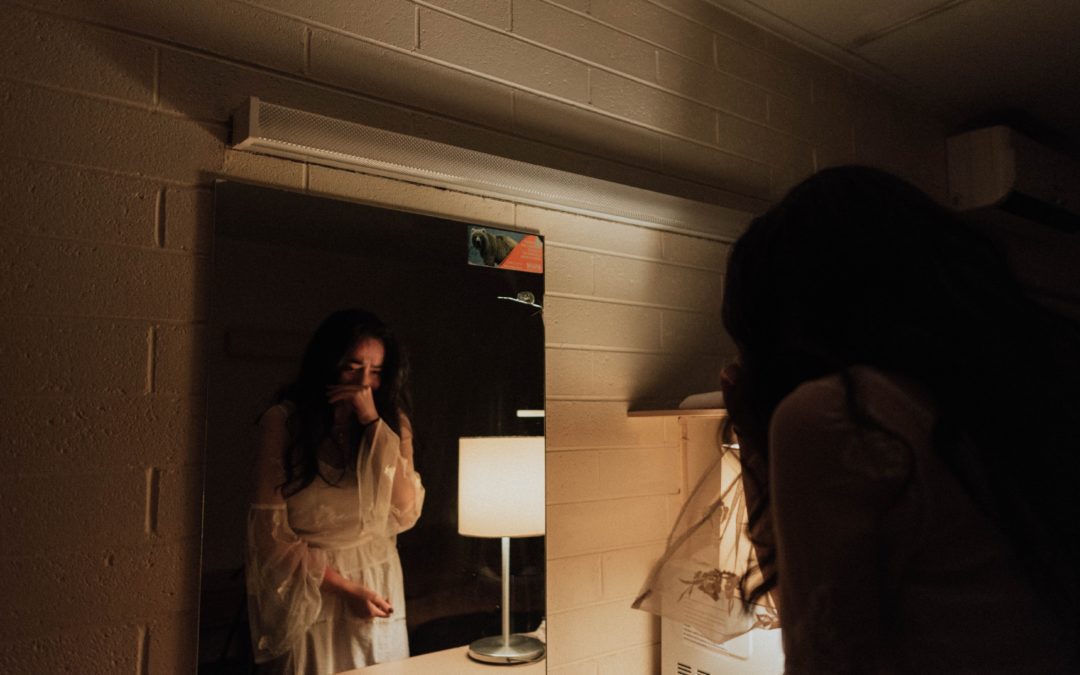
by Brandon Archer | Dec 2, 2024 | Mens Work / Mens Coaching
Help for men’s depression.
In this article, I will share the things that worked for me in overcoming depression.
There are 6 main things that made a difference for me.
Proper sleep.
Eating good, clean food.
Movement, exercise and yoga.
Reading and writing.
Smile and laughter.
Talking to other men about my depression.
These things might seem pretty basic, but let me explain why they are all so important, and I don’t think you can pick and choose. This is about taking care of yourself. What I will say is when you are depressed, these seem like mountains to climb! SO, read them all, but the last one is where you can gain strength to climb those mountains! You can do this!
Proper sleep helps cope with depression.
I have seen some people think they can sleep 5 hours and be fine. For me, it’s 9 hours of QUALITY SLEEP. If I do not get enough sleep I spiral, and it’s hard to recover from once I get into a sleep deficit.
In order to have a good sleep you should consider the following things.
No screens for the hour leading up to bedtime.
No food for 2 hours before bedtime.
No alcohol for 2 hours before bed. (better yet, no alcohol at all)
Cool , dark room.
Many people, including myself, can have racing thoughts before bed, your mind trying to process your day. It can be very hard on your sleep. What you think about in the 5 min before falling asleep in what you subconscious will stew on. You can make a choice to consume other thoughts beside the ones you are used to! Here is a link to a short audio file you can try right before bed. It works!
Eating good, clean food is important to overcoming depression.
This seems very obvious, just like getting good sleep but when you get depressed, it can be comforting to eat food that is NOT good for you. It releases feel good brain chemicals, but this is when you need to double down and find healthy ways to break the addictive loop your brain gets in. Fuelling with healthy foods will 100% make a difference. The first week could be challenging as you break old junk food habits.
Here is what I suggest for a basic way to eat. Not a diet, because that doesn’t work from my experience. This is a lifestyle way of eating. It’s a choice, and it takes some effort.
Consider doing 14 hour fasts. That looks like stopping eating at 8pm, bedtime at 10, wake up at 6 or 7am, don’t eat til 10am. “But I have to go to work” I hear you say. Yes, I understand, so do this. Have your AM coffee, let your stomach growl at you. Make something you take to work to eat at 10! Trust me, your energy will go up, not fade. Commit to a week before you pass judgement on this.
Clean food is defined as something you actually prepare, not just heat up. Think of single ingredients. Fruits, vegetables, rice, beans, beef. Not out of a can, jar or box. Yes, you have to actually cook, but again, try it a week and I promise you will start to feel better.
Movement, exercise and yoga helps depression.
Another obvious one, and there have been times during a depression I just want to stay in bed all day, and sometimes I did. But, that sint good for us all the time. I got outside on my bike even when I didn’t feel like it, and it usually helped turn around my mood for the day. A walk around the block is a start. Raiding your heart rate higher is also helpful for your feel good hormones and brain chemicals. Lift weights, run, play your team sport.
One thing I avoided your years was yoga. Then when I went I realized just how great it was for me! You can find many routines on youtube for men specifically that can get you moving, breathing and stretching. Make sure to give it a solid week as well before passing judgement.
Reading and writing is a good way to combat depression.
You might be saying, “I don’t write”. Ok, I get it but bare with me as this is one of the most fundamental secret, free, helpful things out there.
Go to the dollar store and grab a cheap notebook. Write the date on the top of a page and just write. There is no right why to do this. Personal story time. When I started writing years ago, it was absolute chaos on a page. And, its exactly what I needed. This is a way to get the many thoughts out of your head an on a page. Its therapeutic. Don’t think about it, just let the words come out, they do not need to make any sense at all!
Reading is an amazing way to shift your mindset from depression to something new. For me, I have had great results in some easy to digest self help books, but also fiction helps me shift my dark thoughts. One book I call my bible is “the power of now” by Echart Tolle. I have read it about 10 times in my darkest of days. It offers a different take on life, and what you are experiencing that really helped me personally. There are lots of books out there, go with one that “calls to you”.
Smiling and laughing helps depression.
This might sound totally ridiculous to you when you are depressed. You feel bad, in a hole like you can’t get out. I know, I have been there. Try this. Put on something on the tv that has made you laugh in the past. Watch it everyday. Or, explore new comedy shows, funny movies and shows.
Smiling is easier on your face them frowning. Sound kinda weird? Let me tell you a personal story on this.
People used to ask me all the time “whats wrong?” and I would reply, nothing. You know why the asked? The look on my face, and that hit me pretty hard. I want to acknowledge, when you feel depressed, you feel low. A smile might seem impossible, but allow yourself to find moments to find a reason to smile. Another personal story. The other day I was grumpy and kind of frustrated. My girlfriend sent me a text that got a grin, and I LET myself grin instead of staying in my grumpiness.
Smiling can help shift you from depressed to something better.
Talking to other men about my struggles with depression helped.
You sir, are not alone no matter how alone you feel right now. Most, if not all men no matter how tough they seem have felt depressed. It doesn’t mean anything about your personal worth, in fact, welcome to being a human being. Depression is the ebb and flow of life.
Find yourself some good men to share with. There are 2 different ways I suggest.
The first one is people close to you. Use these words to start the conversation. “Bob, do you have a few minutes to listen to something I am dealing with?” Sounds hard? I know. But think about this, if bob said that to you, wouldn’t you drop everything to listen to him? I know you would. Then, say something like this “ Bob, I am really struggling right now, and I just need someone to listen to me. I feel weak coming to you, but I need help man.” You can do this man, and I know for a fact Bob wants to help you.
Second is this, find a men’s group. WTF is a men’s group? I wrote about it here. There are different types, but they are generally where men support men. Where you can go for support.
Depression is real, and part of life that you can overcome with strength of human spirit.
You are not less than for being in a depression. It can be hard to see that when you are in it. I have experiences that we as humans have an extremely strong spirit, and it’s in these times if you can rely on that, you can make your body and mind do the things above so you can move how you feel and get out of the depression.
None of these suggestions that I have personally used are a substitute for professional help. Sometimes that’s exactly what you need so make sure to seek it out if you think you need to.

by Brandon Archer | Nov 10, 2024 | Mens Work / Mens Coaching
Why do I feel Shame when I make a Mistake?
When you feel shame for making a mistake, it’s probably over amplified, and WHY you are feeling that shame may not even be founded.
Shame is a widely misunderstood feeling, and in this article I am going to share what I have learned about it, and how I have personally overcome it.
Here are the top 3 things you need to know about Shame
- It has probably been used against you as a child.
- Your relationship to shame is most likely a toxic one.
- Shame can be a way our subconscious makes us better than someone, or makes us feel less than someone.
I am going to share some valuable shame knowledge, so that hopefully you can feel less of it, while feeling better about yourself.
Shame is an underlying poison in our society. It has been used in one way or another to keep you feeling bad about yourself. It has been weaponized. It’s covert, it’s in many cases unintentionally used by us, or against us. Let’s take a minute to see how it starts from childhood.
Shame in Parenting
All parents love their children very much. No one would outright try to cause their children harm, but shame has been used for generations in parenting with many people either unaware they are doing it, or they feel it’s the proper way to raise children. Before I share how it is used in parenting, it’s important to think of this. If a parent had been raised being shamed, and it’s covert, how are they to know how to do anything differently as parents? This is a generational cyclical issue that YOU can stop with some knowledge and work.
Here is how we might use shame in a harmful way. “Johny, I told you not to do that 3 times already! I am very disappointed in you!” “Sarah! Stop doing that now or you are going to bed with no dinner!” As a parent, most of us have unfortunately done and said things like this because we are frustrated, at our wits end. We are weaponizing shame to get the result we want.
Why do we weaponize shame in parenting? Because we were probably shamed for just trying to figure out how to be a little human by our parents. It’s a cycle that going unchecked is passed generation to generation. In a lot of parenting scenarios, we are expecting our children to be able to process situations and have the cognitive ability of an adult. And that’s simply not fair. The human brain does not fully develop until we are 26. So a 6,8,10,12 year old cannot grasp many things we are expecting them too.
Your Relationship with Shame is Toxic.
John Bradshaw was a pioneer in working with shame and he coined the term, toxic shame. Shame, in itself, is not bad. I think of another term that has been confusing to our modern society. Toxic Masculinity. Now, we have a confusing spot in society where we decided that masculinity is bad. No, it’s not. The term Toxic is overused and has become a Prefix that when used makes the subject matter very uncomfortable.
Shame is an uncomfortable topic, and by avoiding it all together we contribute to the toxic relationship with it. Let’s dive into it head first and pull the monster in the closet into the light so we can see, it’s just a stuffed animal that we created a scary story about.
Healing this relationship to shame, relearning and allowing mistakes to be what they are can transform your life into one that feels much freer, lighter. It can help you be a parent that instils this free, light feeling in your children, or if you don’t have children the people around you. Shame has its place, and it won’t disappear altogether but your relationship to it can evolve.
I am going to share a personal experience with shame, one that ate me alive and made me feel like a horrible human being for years until I learned to have a better relationship with the shame, and myself.
When my children were younger, I got frustrated with them. I yelled, I was unkind sometimes. I felt so ashamed for treating them that way. No parent wants to make their children cry, feel small, feel like we don’t love them. But it was MY shame that was causing me to lash out, more on that in the next section. But how did I change my relationship to this shame? How did I heal some of the toxic nature and perspective I had on my feelings of shame?
There were 3 major steps I took on to change my relationship to shame
- Compassion for myself for mistakes made. Showing kindness, forgiveness and the understanding that I was 100% doing my best in that moment as a dad as I could with the knowledge and skills I had.
- Getting clear on my personal values, not the ones I adopted by my parents, and what society told me a man’s values should be.
- Hold myself accountable to those values, and have compassion for myself when I slip.
The next section will help tie together why these steps worked, and give a better understanding of how toxic, covert shame influences our thinking and behaviour.
Shame can be a way our subconscious makes us better than someone, or feel less than someone.
“Did you see what that jerk just did?! Learn how to drive buddy!” Who has said something like that? Now, have you ever made a mistake in traffic? Do you think you were on the receiving end of a rant like that? I would venture to guess that you answered YES to both of those.
Here is why that’s covert shame in action.
The human experience is making mistakes. They are simply unavoidable. Remember the examples of the children being scolded for being little humans? Your psyche took that on. It imprinted on you “I must be a bad human, I can’t do anything right”.
In the traffic example, our subconscious found a way to make the driver that made a mistake less than human. We didn’t allow him the space to make a mistake. We shamed him. We made him less, so we could subconsciously feel bigger than him. Unfortunately, this is partly what our parents did to us too.
You may have a default way shame manifests. You might think “I am not a good human. Everyone is better than me, I can’t do anything right” or, you might default to the other extreme. “Look at all these dumb people, they can’t do anything right, Why can’t they figure that out?” It is also possible you swing between the two ways of processing toxic shame.
Understanding how shame has been weaponized, used against you, and how you may use it against others is the first step in creating a new way of relating to shame.
To deep dive into it, pick up John Bradshaws “Healing the Shame that Binds You”.
I hope this has left you with some knowledge that you can start using to heal the shameful feelings. It’s a gift you can give yourself with some work to feel lighter and better about yourself.

by Brandon Archer | Jan 22, 2024 | Mens Work / Mens Coaching

 Do you ever feel an inexplicable fear of being left, betrayed, or alone? If so, you’re not alone. I can resonate deeply with this sentiment, as I carry a profound abandonment wound close to my heart. But here’s the truth – we all have one. No one has sailed through life unscathed, free from moments that shook our sense of safety.
Do you ever feel an inexplicable fear of being left, betrayed, or alone? If so, you’re not alone. I can resonate deeply with this sentiment, as I carry a profound abandonment wound close to my heart. But here’s the truth – we all have one. No one has sailed through life unscathed, free from moments that shook our sense of safety.
Our parents, despite their best efforts, often unintentionally contribute to this wound. It might have been a seemingly insignificant incident, perhaps during our pre-verbal stage when we yearned for connection with our mothers and didn’t receive it. Maybe Mom wasn’t there when we woke up from a nap – a moment that might seem trivial but carries weight in the eyes of our nervous system.
The abandonment wound doesn’t discriminate. It could be triggered by a variety of events, such as losing a job, friends bailing on plans we eagerly anticipated at 14, or partners walking away. It embeds itself in our psyche, and most of us harbor a fear of being left, betrayed, or alone.
This wound, once established, can give rise to numerous challenges. It may hinder our ability to let love in, make it difficult to trust those who genuinely care for us, and create a sense of insecurity that prevents us from taking healthy risks, like pursuing a new business or accepting a job in a different city. Self-doubt often emerges as a consequence, urging us to “play it safe.”
The impact is most apparent in romantic relationships. The fear of reliving the pain and fear associated with abandonment can manifest as anxious behavior, where individuals grasp desperately at any semblance of available love, or as avoidant behavior, pushing away those who genuinely care. Both responses are common, and you might observe them in yourself and those around you.
It’s essential to recognize that these issues stem from unmet needs in our childhood or from experiences like job loss and breakups. Unfortunately, many of us are not aware of this truth. It’s not a mainstream teaching, but it holds undeniable validity if we are brave enough to confront it.
For those with an abandonment wound, the typical response of “manning up” won’t suffice. True healing involves connecting with, loving, and nurturing that inner child we all carry. It may not sound conventionally “manly,” but it’s a crucial step toward becoming the most authentic and masculine version of oneself.
A genuine leader, a true king, acknowledges and owns their wounds. By embracing and loving their inner struggles, they pave the way for personal growth and are better equipped to lead and love others from the heart.
Individually, we have the power to provide ourselves with the love we might not have received. By making ourselves feel safe, we radiate that safety to others, contributing to the creation of a world where everyone can feel secure and loved. This journey is not just about self-discovery; it’s a profound commitment to building a world rooted in compassion and understanding.

by Brandon Archer | Apr 9, 2022 | Masculine and Feminine Dynamics, What Women want from men in Relationships
As a man, your masculine power in relationships comes directly from embracing that you in fact do have feminine traits. Denying your feminine(emotional) side is holding you back from accessing your true masculine power.
No woman that wants to be primarily in her feminine essence will show that to you unless you know how to embrace your inner feminine…….first. She will not truly soften into her feminine if she does not see you have done the work to embrace and nurture your inner feminine. She will feel it. There is simply no way to spiritually bypass this one inf you want a polarized relationship.
A man that does this work has a trust in himself and his ability to navigate his emotions that she can sense in his steadiness. This type of man has learned his internal emotional landscape and healed his feminine wounding, and that is a man that a woman will open her heart and pussy too. This man, that has become so intimate with his own feminine side is a man that can be incredibly connected and intimate with his feminine partner while remaining in his masculine core. Polarity. But this is directly because he does not try to fulfill his emotional needs through her.
A man’s masculine presence is directly tied to how connected he is to his emotions( feminine traits). Denying it repels the divine feminine in your woman and you will never receive her divine gifts, the very thing mean crave from women.
Being a man is not simple. Society’s message is confusing and pushes men to be too hard or too soft, but as with many things in life, the balance is where the true power is.
Admitting you have a feminine side is not emasculating. It’s empowering. It will make you MORE masculine to accept ALL sides of yourself. If you choose to ignore this side of yourself, you will never have the relationship with your partner that you desire.
She will never fully open up to you. She will keep up a shield to protect her heart because she cannot trust you. She wants to soften to you, but she needs to see you manage your wounding, your emotions.
As you connect with your heart and provide a steady emotional space for her, she will blossom into her divine feminine as her heart yearns to do.
If you take the time to heal this part of yourself as a man, your romantic relationships will improve.
Your mom is not here, your partner is not responsible to tiptoe around your inability to hold your own emotions and heart. You’re a grown-ass man and no one is coming to help you navigate your emotions, that’s on you to learn how to do.
YOU CAN do it, seek the mentors (men) to teach you.
Related Instagram post

by Brandon Archer | Mar 12, 2022 | Masculine and Feminine Dynamics, Mens Work / Mens Coaching, What Women want from men in Relationships
This triggers the hell outta me.
Impact vs intent.
I was scared shitless when I first heard this term.
I didn’t know how to interpret it. It made me feel like my intent didn’t matter.
I felt that if my words hurt you, you need to own your feelings around that because It meant more that I didn’t mean to hurt you vs the reality that I did hurt you.
I was triggered, I felt like I was being accused of something that I didn’t do.
And yet somehow I knew this was important to explore. That was 8 months ago, and I think I finally understand.
Men need to know this, it’s a common belief when we relate and communicate with women.
We do not get a free pass to hurt our woman’s feelings because “that’s not what we meant”.
So, who can say they have never got defensive, and do what they can to justify what they said, and maybe even argue why she should not feel hurt?
I have tried to defend. And in fact, probably gaslight a woman for feeling the way she did. I was operating from a wounded boy place, not a grounded, loving man. This has been a hard lesson for me, as I have always felt like a very caring man. While that may have been true, I was also not owning how my words or actions hurt the women in my life.
A scared, emotionally immature 12 year old boy showed up and tried to show her why that wasn’t the case, why I didn’t mean to hurt her. Hindsight, she knew I was not trying to hurt her. She wanted to be validated in that in fact she was hurt by my words or actions.
Let’s break down what was going on internally for me, and a lot of men in this situation. We feel that if it’s my fault she is hurt, she will leave. Perhaps we feel it means we are a bad person. Maybe we think they will leave if we don’t convince them we are actually good. Insert your story here ________.
Being a human can be messy at times. One attribute that men( and women but I am speaking to men) have is trying to control. If we have hurt our woman, that means we lost control, and the defensive behaviour, trying to show here that’s not what we meant means we lost control, and that can feel like it knocks us off balance.
One of our jobs as men is to be grounded AF, which if we are, allows us to see this impact vs intent subject from a heart-centered place, and hold our own hearts and triggers from our old wounds and stories first so that we can, in turn, hold our partner’s hearts in the times we hurt her.
Why is this important? Because we need to be able to see what our woman needs from us at that moment. A heartfelt apology for hurting her, learning not to repeat the behavior that led to hurting her, and reconnecting with her heart is what she needs from you.
She knows you didn’t mean to hurt her (and if you did, you have a whole other set of issues you need to look at) and she wants to feel safe in your relationship container again. She is telling you you hurt her because she WANTS to reconnect.
So, do the work to take care of your own triggers so you can be in your heart when she brings how you impacted her to you.





